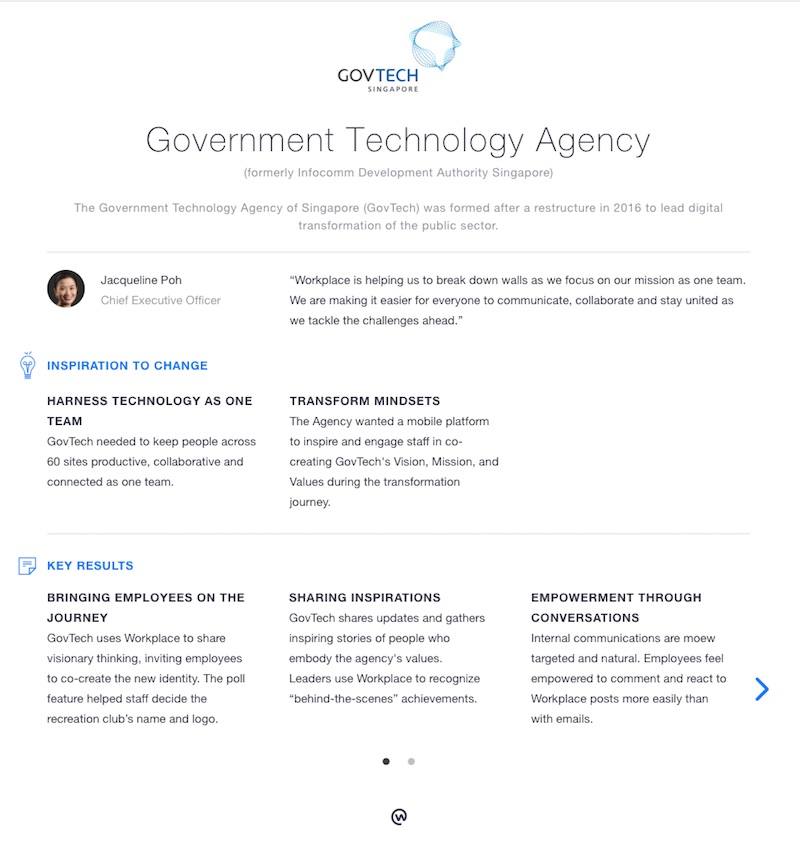For years, Facebook has been working hard trying to come up with something that can rival Slack, the popular workplace software that has features like team chat rooms, direct messaging, file sharing, and more.
Facebook thinks they can do better — and thus they created their own team collaboration tool called Workplace, which was just launched last month after years of beta testing. Companies such as The Royal Bank of Scotland, Oxfam, and even Campbell Soup Company have already gotten on the bandwagon. It works similar to Slack, but Workplace has additional features like live videos, activity tracking, news feeds, smartphone integration and other tools that make intra-company communications way easier. Not to mention that everyone already has a Facebook account, so it’s easier to get into.
One entity that nobody expected to jump into Workplace? The Singapore Government. As in, the whole country’s civil service — and the first civil service in the world to adopt the social network’s collaborative platform, GovInsider reports.
So far, 15 government agencies and over 5,300 public officers in Singapore are now using Workplace by Facebook, with the rest of the civil service (of about 143,000 officers) expected to use the software by March 2017.
It’s a separate entity in itself, meaning civil servants don’t have to connect to the dedicated government intranet. “We have seen agencies reduce the number of internal emails sent by posting their major announcements on Workplace,” said Head of Civil Service Peter Ong this morning at the PS21 ExCEL Convention.
This will somehow align with the government’s plan to shut down all internet access for public servants in a big to tighten security and stop potential leaks of work e-mails and shared documents.
So far they’ve observed better adoption by their public officers, with bigger rates of active weekly users and an “explosion of activities” since the launch in October.
According to Ong, the government had previously used their own custom-built workplace social network called Cube since 2013, but that didn’t take off like they hoped it would. Knowing how government projects go, we’re assuming that Cube must have been totally unintuitive and boring to use.
Cube also didn’t have a mobile app, which limited its usage, said Ong. Workplace by Facebook in comparison can be accessed on smartphones and tablets as well.

What this means is that Facebook managed to nab one of their biggest clients so far for their newly launched product — and probably one that should nudge other public entities to use too. If the whole Singapore Government is using Workplace, that says a lot about the usefulness of the software, right?
What this also means is that civil servants across the nation will be getting paid to browse Facebook.



